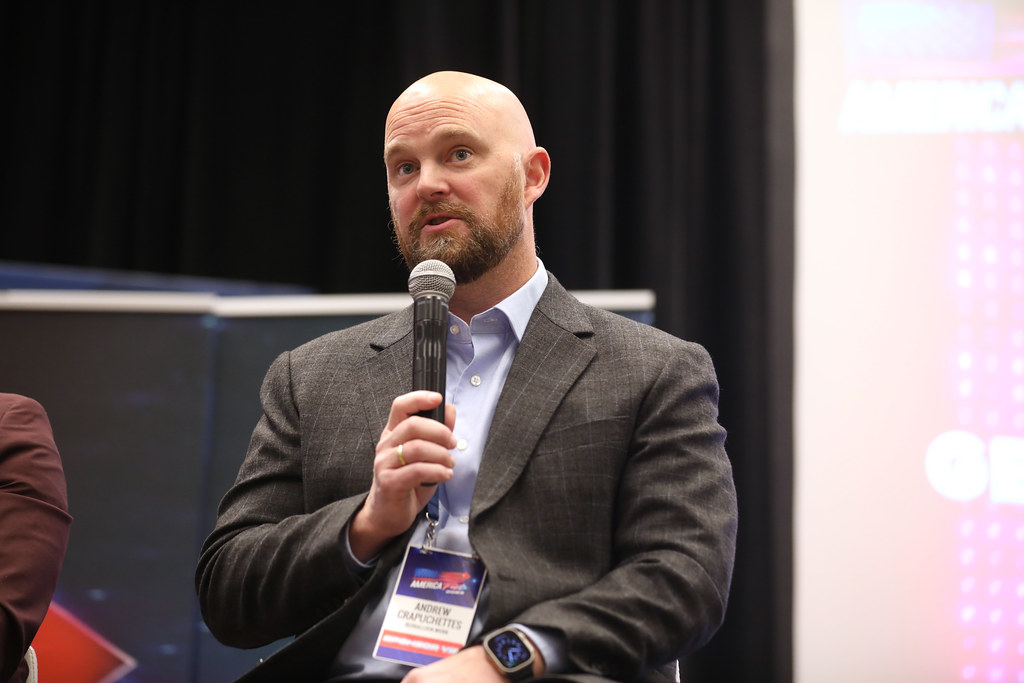
The global workforce has experienced a period of unprecedented transformation, with the ‘Great Resignation’ of 2021-2022 marking a pivotal moment where millions of individuals re-evaluated their career priorities. Fuelled by a tight labor market and a desire for improved compensation, work-life balance, and overall well-being, many professionals embarked on new career paths. This mass exodus, encompassing an astounding 47 million Americans in 2021 and over 50 million in 2022, was initially perceived as a collective empowerment, with employees holding significant leverage in seeking greener pastures.
Yet, as the dust settles, a new, more somber chapter is unfolding in this workforce narrative: the ‘Great Regret.’ This phenomenon describes the widespread disillusionment experienced by a significant portion of those who eagerly jumped ship, only to find that their new roles failed to deliver the anticipated satisfaction. The shift from enthusiastic departure to profound regret highlights a critical lesson in career management and underscores the complexities of job satisfaction beyond surface-level incentives.
In this in-depth analysis, drawing upon rigorous research and expert insights, we delve into the multifaceted reasons behind the ‘Great Regret.’ We will uncover the striking statistics that define this trend, identify which demographic groups are most affected, and dissect the tangible and intangible factors that have led so many to second-guess their career-altering decisions. Understanding these dynamics is crucial for both employees contemplating a change and organizations seeking to foster more resilient and fulfilling work environments.

1. **The Great Regret’s Unfolding Reality: From Mass Exodus to Widespread Disillusionment**: The ‘Great Resignation’ saw job openings and the number of individuals quitting roles reach record highs during the pandemic. For instance, the U.S. Bureau of Labor Statistics reported 4.5 million quitters in November 2021, with job openings soaring to over 11 million just a month later. While not all departures were voluntary, many professionals actively sought better pay and an improved work-life balance. However, what seemed like a promising fresh start for many has now culminated in a stark realization: the grass was not always greener.
Analysis carried out by payroll and HR experts Paychex has revealed a profound turn of events, coining this new era the ‘Great Regret.’ A staggering 80% of individuals who quit their roles in search of new opportunities ultimately regretted their move. This figure indicates a significant disconnect between the perceived benefits of a career change and the actual experience, suggesting that many failed to find the fulfillment they sought. The initial optimism surrounding greater autonomy and better conditions has largely been replaced by a pervasive sense of remorse.
2. **A Deeper Look at Dissatisfaction: Unmet Expectations in New Professional Landscapes**: Beyond the headline statistic of regret, a closer examination reveals the specific areas where new jobs fell short of expectations. The Harris Poll, which surveyed over 2,000 jobseekers, found that candidates are encountering substantial difficulties in securing new employment. Paychex’s sample data suggests that a job search took an average of three to six months for 50% of respondents, while the Harris Poll indicated that 60% of seekers reported their search dragging on for over six months, with many applying to more than 50 roles.
Moreover, the quality of the new roles often proved disappointing. More than 70% of those surveyed admitted that it was harder than they had anticipated to secure a desirable position. Despite work-life balance and mental health being primary motivators for many resignations, only about half of respondents in new workplaces reported satisfaction with their mental health (54%) and work-life balance (43%). This stark reality underscores that the anticipated improvements often remained elusive, contributing significantly to the overarching sentiment of regret.

3. **The Generational Divide in Regret: Gen Z at the Forefront of Disappointment**: When dissecting the ‘Great Regret’ by generation, Gen Z stands out as the cohort most profoundly affected by their career changes. According to Paychex, a remarkable 89% of Gen Z workers expressed regret over quitting their previous jobs. This high level of remorse among the youngest segment of the workforce points to particular challenges and unmet expectations specific to their professional journey.
The context further illuminates that Gen Zers reported the lowest levels of positive mental health and work-life balance in their new roles. Jeff Williams, vice president of enterprise and HR solutions at Paychex, noted that these young workers were also most likely to miss working in the office, suggesting a potential underestimation of the value of in-person collaboration and structured environments. The job perks, benefits, and culture that initially attracted them to the ‘Great Resignation’ proved insufficient to maintain their satisfaction long-term.

4. **The Industry Switch Paradox: When ‘New’ Doesn’t Mean ‘Better’**: A significant contributor to the ‘Great Regret’ is the decision by many professionals to switch industries entirely, often driven by a quest for a complete career overhaul. Paychex research found that 9 in 10 people reported changing industries after they resigned. This ambitious leap into new sectors, while potentially offering novel opportunities, also came with a heightened risk of dissatisfaction.
The data clearly indicates that professionals who changed industries were 25% more likely than those who stayed within their existing fields to regret their choice. This suggests that the learning curve, cultural adjustment, and the often-unforeseen complexities of an entirely new industry contributed to a greater sense of disillusionment. The lack of existing networks, industry-specific knowledge, and established career progression paths in a new domain likely exacerbated these feelings of regret.

5. **The Intangible Loss: Missing Colleagues and the Erosion of Workplace Community**: While financial incentives often dominate discussions around job satisfaction, the ‘Great Regret’ underscores the profound importance of intangible workplace elements, particularly human connection. The most common reason cited by job-hoppers for wanting to return to their former employers was a deep yearning for their old colleagues, with almost a third of respondents expressing this sentiment. This highlights the critical role of social bonds in fostering overall job satisfaction and a sense of belonging.
Jeff Williams from Paychex emphasized that these friendships create a sense of community among employees, which in turn contributes to a positive company culture—another element frequently missed by those who left. Gallup research supports this, indicating that camaraderie with co-workers can lead to increased employee work effort and retention. The survey data also revealed a gendered aspect to this loss: women were 31% more likely than men to miss their co-workers when switching jobs, and 15% more likely to miss the positive company culture, underlining the significant emotional investment in workplace relationships.

6. **The Elusive Promise of Better Compensation and Benefits: When Money Isn’t Enough**: The initial wave of the ‘Great Resignation’ was significantly driven by the allure of higher compensation, with employers “throwing huge sign-up bonuses and other wads of cash at job switchers,” as noted by Andrew Crapuchettes, CEO of Red Balloon. Many professionals actively sought substantial salary bumps, recognizing their increased market value in a competitive environment. However, the ‘Great Regret’ now serves as a powerful reminder that financial gains, while important, often do not equate to sustained happiness or satisfaction.
Despite the pursuit of better pay, only 11% of those who left their jobs during the Great Resignation reported being more satisfied with their new salaries than their previous earnings. Furthermore, a significant portion of regret stemmed from the loss of familiar benefits: 27% missed their old salary, 23% valued their old bonus scheme, and another 23% missed their health insurance. Other frequently missed benefits included free lunches, work-life balance, and employee discounts. This collective experience reinforces the old adage that ‘money doesn’t buy happiness,’ highlighting that a holistic package of compensation, benefits, and positive workplace culture is essential for true job fulfillment. Andrew Crapuchettes further observed that job seekers are increasingly prioritizing work-life balance and positive workplace culture above higher compensation, signaling a shift in what truly constitutes a desirable role.”
As the workforce continues to navigate the aftermath of the ‘Great Resignation’ and the subsequent ‘Great Regret,’ it becomes imperative to look beyond the immediate sentiments of dissatisfaction. The long-term implications of frequent job changes, the evolving perspective of employers towards ‘boomerang’ employees, and the strategic pathways for professionals to mitigate future regret are all critical areas for in-depth analysis. Understanding these dynamics offers valuable insights for both individuals planning career transitions and organizations striving to cultivate stable, fulfilling work environments.

7. **The Hidden Costs of Job Hopping: Eroding Professional Networks**: One of the less immediately apparent, yet profoundly impactful, consequences of frequent job changes is the erosion of one’s professional network. Staying with a company or within a particular industry for an extended period naturally allows for the cultivation of robust professional relationships and connections. However, a habit of job hopping can significantly hinder this organic development, making it challenging to establish deep-rooted ties within one’s industry or to secure reliable references when future opportunities arise.
This lack of a strong professional network can severely limit an individual’s prospective career growth. Without established connections, navigating industry nuances, identifying new opportunities, and gaining insider insights become considerably more difficult. The crucial support system of colleagues and mentors, which often forms the bedrock of career advancement, simply does not have enough time to solidify when professionals frequently move between organizations.

8. **The Resume’s Silent Story: Lacking Long-Term Accomplishments and Project Experience**: Beyond networking, a history of frequent job changes can present a challenge in demonstrating a consistent record of accomplishment and significant contributions to previous companies. Employers typically favor candidates who exhibit a sustained trajectory of growth and progression within their roles, valuing the proven ability to see initiatives through to completion. Constantly switching careers can make it difficult to showcase long-term commitment and deep development in any specific position, potentially putting job-hoppers at a disadvantage when competing for roles that demand such experience.
Many strategic roles and leadership positions require involvement in long-term projects and intricate strategic initiatives, which often span months or even years. When an individual frequently changes jobs, they are less likely to gain this invaluable experience of seeing complex projects from inception to successful completion. This can result in a resume that, while perhaps diverse in its listing of roles, lacks compelling evidence of sustained contributions and the ability to manage or participate in extended, high-impact endeavors.

9. **The Employer’s Evolving Stance: Welcoming the ‘Boomerang’ Employee**: Despite the widespread regret, there is a silver lining for those who might wish to return to a former employer: a growing openness to ‘boomerang’ employees. Paychex’s research indicates that 70% of employers either want to give or have already given people their jobs back, with medium-sized businesses being the most proactive in this regard. This willingness stems from practical considerations, including tight labor markets, the need for specialized skills, reduced time-to-performance for a known quantity, and a clear understanding of the quality of work to expect from former staff.
However, this openness is not universal, as some employers maintain hesitancy, citing concerns about loyalty, expectations of higher compensation, and underlying suspicions regarding the employee’s motives. While returning employees received an average 7% raise, 38% of employers were unwilling to offer new benefits to former employees, and nearly a third would not consider rehiring at all. Blue-collar employers, for instance, were 17% more likely than white-collar employers to resist rehiring.
Yet, the value of boomerang employees is demonstrably significant. A study by Cornell University revealed that returning employees consistently received stronger performance evaluations than other new hires. This superior performance is often attributed to their pre-existing familiarity with the company’s unwritten rules, its culture, and how best to cultivate positive relationships with colleagues. For organizations seeking efficiency and proven talent, reconsidering former employees can be a strategic advantage.
By carefully evaluating their true motivations, exploring avenues for renegotiation with their current employers, and executing professional and courteous departures when a move is unavoidable, employees can significantly reduce the likelihood of experiencing ‘resigner’s remorse.’ This strategic approach transforms potential regret into opportunities for considered growth, ultimately fostering a more resilient and satisfying career trajectory in an ever-evolving workforce. The wisdom gleaned from the ‘Great Regret’ serves as an enduring guide, reminding us that true career fulfillment is often found not in the pursuit of external validation or fleeting financial gains, but in thoughtful self-reflection and strategic, human-centered decision-making.




